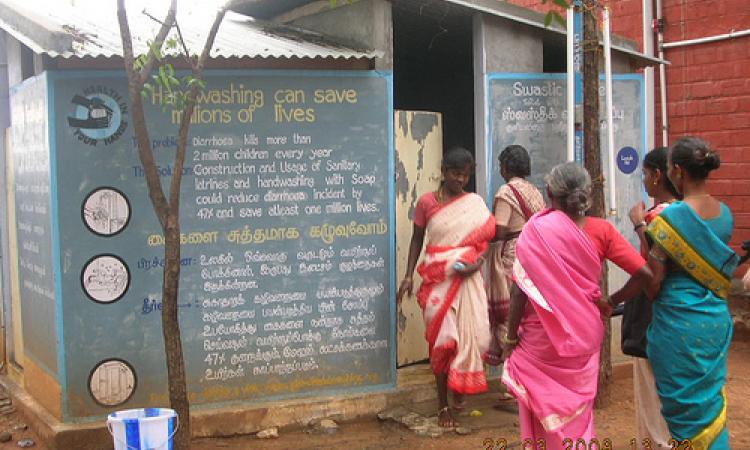
The World Bank approves $1.5 billion loan to boost the Swachh Bharat Mission
The World Bank's International Bank of Reconstruction and Development (IBRD) has approved a $1.5 billion loan to boost the Swachh Bharat Mission's implementation over the next five years. The loan amount will solely be spent on the Swachh Bharat – Gramin activities, to improve sanitation infrastructure in rural areas. Independent evaluations will keep track of progress and states will be given incentives for meeting performance standards. Constant monitoring and regular third party assessments is expected to help measure progress accurately.
Navi Mumbai initiates live monitoring of garbage collection
Navi Mumbai Municipal Corporation has initiated live monitoring of waste collection by tagging garbage trucks with RFID chips using German software. So far, 119 trucks and 22,000 bins have been tagged with these tracking chips. While NMMC claims to be the first civic agency to have implemented the garbage tracking system, serious doubts have been cast over the long term sustainability of the initiative with respect to proper maintenance and upkeep of infrastructure.
Bengaluru to follow the ‘two bins and one bag’ system for garbage disposal
The Karnataka High Court has directed the Bruhat Bengaluru Mahanagara Palike (BBMP) to incorporate the ‘two bins and one bag’ system for garbage disposal. From now it would be mandatory for all categories of waste generators to segregate waste into wet, hazardous and dry at source. Wet waste will now go into green bins, hazardous waste in red bins and reusable bags will henceforth be used to hand over dry waste to the garbage collectors. The Court also noted that thin plastic lining should no longer be used in bins used to collect wet waste. Violators would be identified and penalized after the changed system has been officially publicized.
Importance of on-plot sanitation felt more today than ever before
With the mushrooming of residential complexes and villas in cities, the importance of on-plot sanitation has increased manifold. Activists hold that building bye-laws need to be amended to make on-plot sanitation options compulsory, especially in non-sewered areas. Toilet pits and septic tanks need to be built as per appropriate design standards and BIS codes. Similarly, setting up and maintaining Faecal sludge treatment plants also becomes crucial in integrating decentralised systems with the overall sanitation plan.
Sanitation survey to be conducted across 75 major cities from January 4
As part of the Swachh Bharat Mission, sanitation surveys will be conducted across 75 major cities from January 4, 2016 and the results are expected to be announced by the month end. Similar to the previous exercise, the aim is to promote a sense of healthy competition between cities to keep their surroundings clean. Cities will be rated on the levels of observed cleanliness, progress in household and community toilet construction among others. Questionnaires would be used to collect data from urban local bodies, direct observation and citizen feedback.
Swachh Bharat Cess expected to fetch the government Rs 10,000 crore in a year
The Government expects revenue of Rs 10,000 crore a year from the newly introduced Swachh Bharat Cess. Funds generated through the imposition of the cess will be used for financing and promoting initiatives under the Swachh Bharat Mission. The 0.5% additional cess was introduced in November this year on all services liable for service tax.
This is a roundup of sanitation related news published between December 13 and 19, 2015